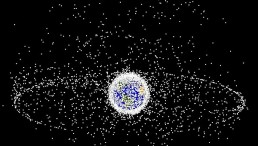Scientists and policymakers have used diverse assessments including climate change and global warming potential in order to show the effect of greenhouse gasses, such as carbon dioxide and methane, to climate change. Still, global warming potential does not really give an accurate reading of the effect of greenhouse gasses and climate change on the environment, both in the short and long-term.
Researchers from Princeton University, the Environmental Defense Fund and Harvard University explain iIn the May 5 issue of Science that global warming potential gives an estimate of the warming of greenhouse gasses over 100 years. However, the climate change assessment discounts the influence of greenhouse gasses that vanish after a decade or two. Hence, the trade-offs between short- and long-term policies tend to get masked in debates.
Experts point out that a standardized approach is needed to point out commonly utilized timescales of 20 and 100 years. It is a two-valued approach that would give clear climate change policy analyses. Many times, they could lead to misleading debates about policy trade-offs, according to Phys.org.
"Different gasses have widely different lifetimes in the atmosphere after emission and affect the climate in different ways over widely different timescales," said co-author Michael Oppenheimer, the Albert G. Milbank Professor of Geosciences and International Affairs, Woodrow Wilson School of Public and International Affairs and the Department of Geosciences at Princeton University. "The paired approach creates a more comprehensive picture of the nature of climate change and the effects of various policies to stem its consequences."
Experts advocate that the 20-year, as well as 100-year time scales, should be used. However, they do not call for change in time horizons. Climate change policy uses the 20- and 100-year time scales so that a shift to newer time horizons would face a lot of resistance.
It is important that near as well as long-term climate impacts of policies should be transparent to a decision maker, said lead author Ilissa B. Ocko, Environmental Defense Fund, regarding the climate change assessments. Although the issue is not that one timescale is more important than another, it is important that the decision maker should be fully aware of all the impacts of the climate on all the timescales.
YouTube/Emily Blegvald














